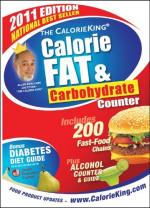|
This section contains 1,213 words (approx. 5 pages at 300 words per page) |

|
Carbohydrates are compounds consisting of carbon, hydrogen, and oxygen and are important sources of dietary energy. For most of the people in the world, carbohydrates--chiefly in the form of cereal grains and potatoes (or other root vegetables)--serve as the major source of energy. Even in the wealthier countries, such as the United States, carbohydrates provide 45 to 50 percent of the daily calorie count. In poorer countries, these easily digested and relatively inexpensive nutrients often provide well over 80 percent of every day's calories.
Chemically, carbohydrates are naturally occurring compounds composed of carbon, hydrogen and oxygen (CHO). In many cases the hydrogen-to-oxygen ratio of carbohydrates is the same 2 to 1 ratio as that of water. (Originally, chemists believed that all members of the class could be described as "carbon hydrates," which is how the name originated. Although this assumption was soon disproved, the name remained.)
The carbohydrate group includes sugars, starches...
|
This section contains 1,213 words (approx. 5 pages at 300 words per page) |

|


